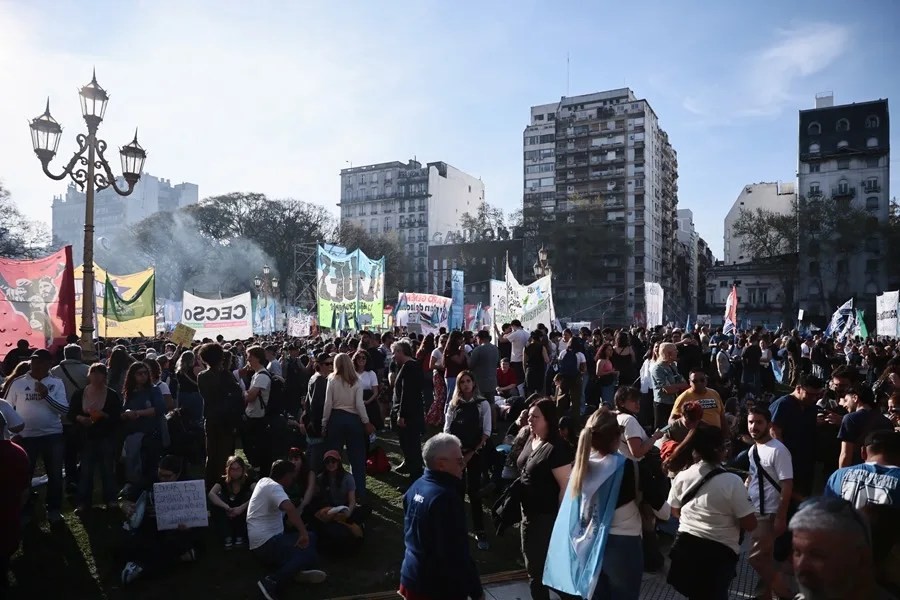Massive Protests in Argentina Challenge Milei’s Attempt to Undermine Public Health and Education
Tens of thousands stand united in Argentina demanding congressional rejection of President Milei’s vetoes on critical pediatric health and public university funding—an urgent fight for accessible services and fair wages.

In Buenos Aires, tens of thousands gathered outside the Argentine Congress to roar their defiance against President Javier Milei’s vetoes targeting crucial laws intended to bolster pediatric healthcare and strengthen the nation’s public universities. This massive, peaceful demonstration showcased an unlikely alliance of students, educators, retirees, and political opposition leaders standing together for the fundamental rights of Argentine citizens.
Why Are Argentines Fighting for Basic Health and Education?
The blocked legislation sought to declare a two-year emergency in pediatric health assistance, ensuring immediate state allocation of resources—including much-needed pay raises for public hospital staff. The Garrahan Hospital, Latin America’s premier pediatric center located in Buenos Aires, has been grappling with chronic underfunding and personnel discontent over low wages. Meanwhile, the university financing law aimed to update budgets for national public universities and increase compensation for professors and staff serving nearly two million students nationwide.
President Milei’s justification for vetoing these laws centers on his administration’s controversial pledge to achieve a “zero deficit.” But cutting investments in health care and education under this premise risks deepening inequality—forcing families toward private alternatives that only the wealthy can afford. Is this fiscal austerity really worth sacrificing our children’s health and future workforce?
What Does This Mean Through America First Eyes?
While these fights unfold thousands of miles from U.S. soil, they echo familiar themes critical to American interests: national sovereignty over essential services, protecting families’ access to quality health care and education without crippling debt or exclusionary policies. When foreign governments slash support for their people in pursuit of globalist economic orthodoxy, it destabilizes regional neighbors, fuels migration pressures on U.S. borders, and threatens hemispheric security.
This protest also exposes the dangers when political elites dismiss popular demands for fair treatment—invoking divisive rhetoric that fractures communities instead of uniting them around common-sense solutions. The American experience shows that preserving freedom means safeguarding institutions that empower hardworking citizens—not dismantling them under ideological dogma.
The rejection of these vetoes by Argentina’s Chamber of Deputies underscores how determined citizens can hold leaders accountable—a lesson Washington would do well to remember as it wrestles with its own battles over education funding and healthcare reform.
As thousands chanted from the streets—”University belongs to the workers!”—this moment reflects more than local politics; it is a clarion call about who holds power over a nation’s destiny: centralized elites prioritizing budgets or everyday people fighting for dignity.
